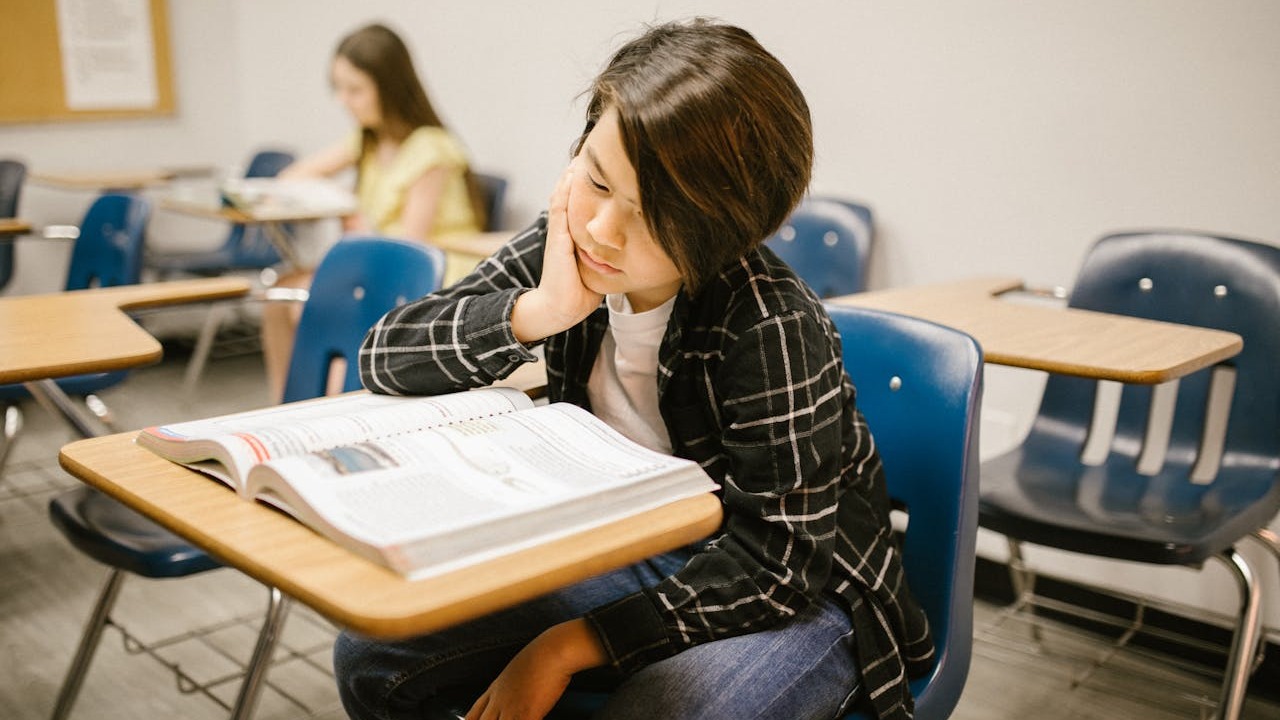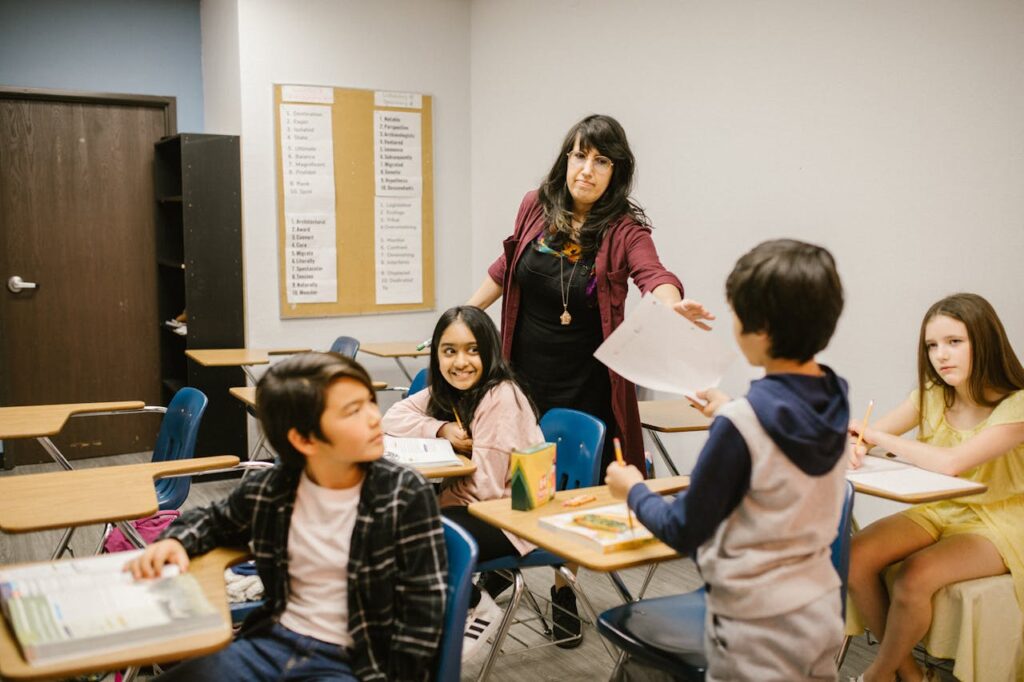Science
The Monk Who Saw the Future: Did an 11th-Century Benedictine Beat Astronomers?
17 February 2026

Education should keep up with the world and prepare young people for life. A school is a place where children spend half of their time, so it cannot be just an institution that passes on knowledge. It should educate a person, and therefore approach them holistically, seeing their body and soul.
We have long since ceased to delude ourselves that the function of a school is limited only to teaching. Indeed, teachers with several decades of experience often cannot accept the fact that the current requirements of children are much higher and it is not about issues related to teaching subjects. Young people want to be seen and heard. Meanwhile, school very often hurts them, making them become bitter adults. Why do we destroy individualism? Why do we kill dreams?
A wise doctor knows that the effects of any therapeutic influence have to be waited for to determine whether the treatment is working or not. Meanwhile, many years ago, the education sector was taken up by politicians. It is interesting the fact that each successive government diagnoses the disease and claims that it knows how to heal Polish education.
Very often it is concluded that we as Poles spend too little money on education. Whereas since 2015, we have been spending more than the EU average (4.9%) for this purpose. The problem, therefore, is not the quantity of funds, but their effective use. There is something wrong with the budget allocated to schools since there is no money for decent salaries for teachers, which will not only give dignity to those working in this profession but will attract talented, well-educated specialists. From the perspective of working at school, I observe how much money is wasted on senseless and often unused equipment that is bought only to close the budget at the end of the calendar year. Safes in some schools are bursting at the seams when it comes to laptops and tablets donated through countless programs, but once again we hear about donating money to the next, electronic shopping… Life could not be any better!
The waste of resources is a huge problem, all the more glaring because in some areas a lack of funding can be seen.
Another issue is the organization of the education process. Almost every term of the Sejm brings new ideas that are a “recovery plan” for the situation caused by previous reforms. It seems that no one understands the process that takes time to be able to evaluate the actions taken. The effect is expected immediately, for now, as if the proposed solution had a magical influence. This is a very serious mistake.
We recommend: Reflective Learning: The Power of Metacognition in Education
An elephant, a monkey, a seal and a cat are standing under the tree. Each of them has the task of climbing the top of the tree. We will assess the time in which they will manage to do so. This common story presents the mechanism of the evaluation system. Despite the efforts, which result mainly in beautifully written documents (and this is where adaptations often end), in our school, we still do not see the individualism of students. We assess them in each subject, assigning the same tasks. Of course, some basics should be the same for everyone. Nothing can replace learning to write, read, or count. For several years, participation in artistic subjects and physical education has been evaluated based on the effort made, not the final result. Why can’t it be the same in other lessons?
The problem lies not even in the requirements themselves, but in the feedback, and its lack, which is limited only to digits from 1 to 6. Indeed, the teacher does not have time to explain to each child what they did wrong in a particular task. But maybe that is why it is worth limiting the number of tests to the necessary minimum. Maybe it’s worth focusing on learning “here and now,” that is in the classroom, not at home. There is a misconception that if a “portion of material” is to be assessed in the form of a test or pop quiz, students will begin eagerly to absorb knowledge. Indeed, some of them will. But the question is whether they will be able to benefit from this knowledge in life. Do they learn by processing the material at a deep level or are they just limited to so-called “cramming”? If we manage to interest the student in the subject, we will show that what we say is reflected in the reality that a given physical or chemical process occurs in their everyday life, assimilation may turn out to be much more effective. Students will be able to use the acquired knowledge and skills in the future, which is a real indicator that the child has learned something.

However, it is difficult to focus on what interests children and what is useful in life, if we have to “rush through the program,” otherwise we will not do it until the holidays and suffer the consequences. We are glad that Polish students score higher in comparative tests against their peers from other European countries. But does this mean that they have a lot of knowledge about the world and can find themselves in it perfectly? No, it does not. This shows that our children are good at taking tests. What percentage of our students, from a country of almost 40 million people, become Nobel Prize winners? How many strong global brands do we have? Of course, we have great scientists and excellent specialists. However, they are people who seem to have succeeded not because of the education system, but despite it.
Teaching key subjects such as Polish, mathematics and foreign languages is mainly preparation for tests. Let’s ignore the frightening fact that one bad day can determine the entire future of the student.
How many absurdities there are in curricula is known only to teachers who, even if they wanted to teach, cannot do so, because their work is also assessed through the prism of exam results, and not by their effectiveness in the actual transfer of knowledge. It has already become a legend that the interpretation of a poem by the student is graded according to a key. Thus, when writing their first longer texts, young people cannot allow themselves the freedom of feeling, association and contemplation of poetry. They have to guess what is important and what is not in the poem from the point of view of the author of the task. They need to know what a given metaphor means and why the author used it. As if one could find a single, universal and objective answer to everything…
Mathematics is the queen of science. And indeed, it is only in adulthood that we notice what is useful to us in everyday life and what is not. Of course, if the student feels that they see their future in a given subject in college and then in their professional career, it is necessary to equip them with the basics that will allow for their development. But why teach everyone everything, or rather demand that everyone know everything? Can someone answer the question of why we solved polynomials at school? A friend who got a “6” (A+) grade in math doesn’t know how to share the cost of fuel for a car trip together. I know, although I scraped through with a “3” (C).
The study of foreign languages should be commented on with eloquent silence. The result of the matura exam depends on outstanding knowledge of grammar. Will there be room for learning conversation in the lessons, during which there is “belaboring the point” about when we use one tense or the other? Many people perfectly understand the semantic nuances of language but are afraid to use it. Why? We often have an inner conviction that if we make mistakes, we will run the risk of being ostracized. It is getting used to the spoken language that allows one to break the barrier of fear and use the acquired knowledge in real, everyday life.
We recommend: How Does a Young Person’s Brain React to Trauma?
According to the latest reports, Sweden is getting rid of electronic equipment from schools. After years of “experiments,” it was found that replacing books with tablets and notebooks with laptops was a mistake.
Meanwhile, in Poland, we have an atmosphere of a shopping spree. We replace ordinary boards with huge touch screens. Children have contact with such devices earlier and earlier in life. They often use smartphones without restrictions. Meanwhile, the school, which should teach the values and hygiene of life, serves another dose of electronic images, “producing” a multitude of people who do not have the important ability to postpone pleasure. The mechanism of the influence of touch screens on the brain is such that it constantly stimulates the reward system because every action (touch) causes an immediate reaction.
What a hypocrisy it is to regret that there are more and more children affected by various types of hyperkinetic disorders (e.g. ADHD), and then to serve them a “mixture” in the form of an excess of colors, shapes, and sounds, there are enough of which in the school corridor. Just open any textbook for confirmation. How is a few-year-old child supposed to focus on a task when there is more going on on one page of their book than on the page of a decent comic book? Of course, it can’t be boring. But everything requires balance.
In reality, where money and the economy are the priority, there is no room for man. Imperceptibly, we have become hostages of our inventions. We have sacrificed our humanity to acquire new resources, which do not bring us happiness, as we seek the help of psychologists or psychiatrists en masse.
The school should return to humanistic ideas. Such an approach to education is proposed by an NGO: Holistic Think Tank. The created IDS educational project is an innovative pedagogical method, the assumptions of which are expressed in the ideas of CPUS (What Schools Should Teach). These values have been identified and described based on phenomenological studies. According to HTT, the aim of the school should be to teach in compliance with the idea of humanism. The key competences are flexibility, community, agency, caring for nature, communication, curiosity, self-care, civilization and culture, humanity, trust and hope.
It is difficult to have a more humane approach to education. These values are so crucial, and yet we have forgotten about them. Perhaps it is worth coming back to them to breathe real life into society and free it from mechanical existence.
To take care of others, one must first take care of oneself. If you are in any way connected with teaching today, do not be angry and do not look for malice in this text. Stop for a moment, look inside yourself and try to listen to your needs. What do you want? What do you miss? Your children, your students, need the same. Multiplication tables can wait, geography can wait. Time cannot. Carpe diem.
I wish you to heal yourself and others of the things you are afraid to talk about.
If you are interested in the IDS program, please visit:
More about Holistic Think Tank:
Translation: Marcin Brański
Science
17 February 2026



Zmień tryb na ciemny